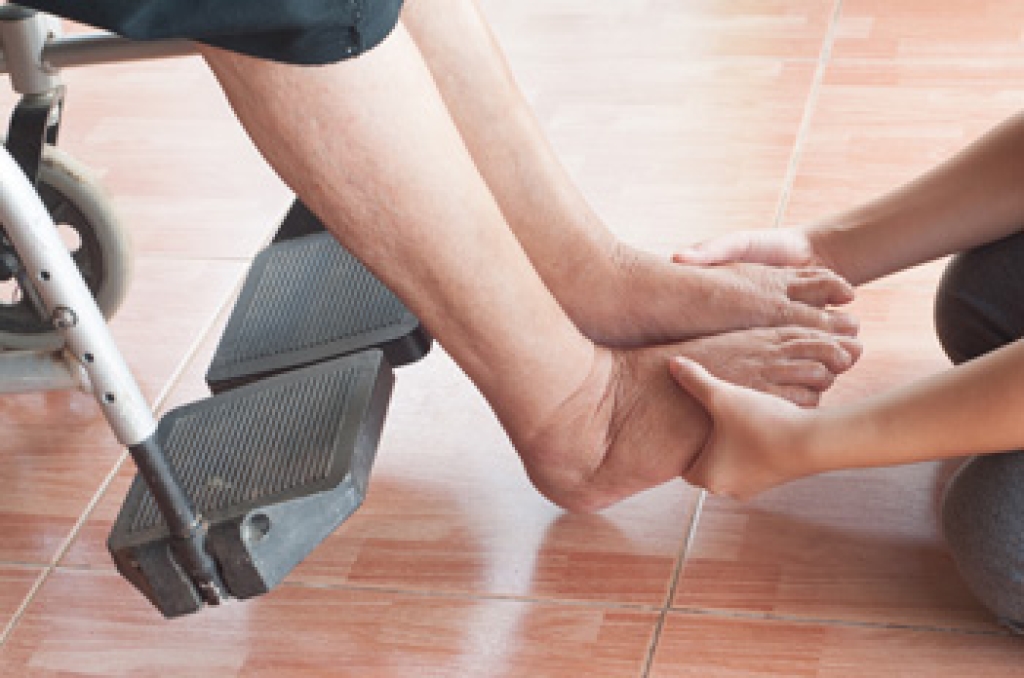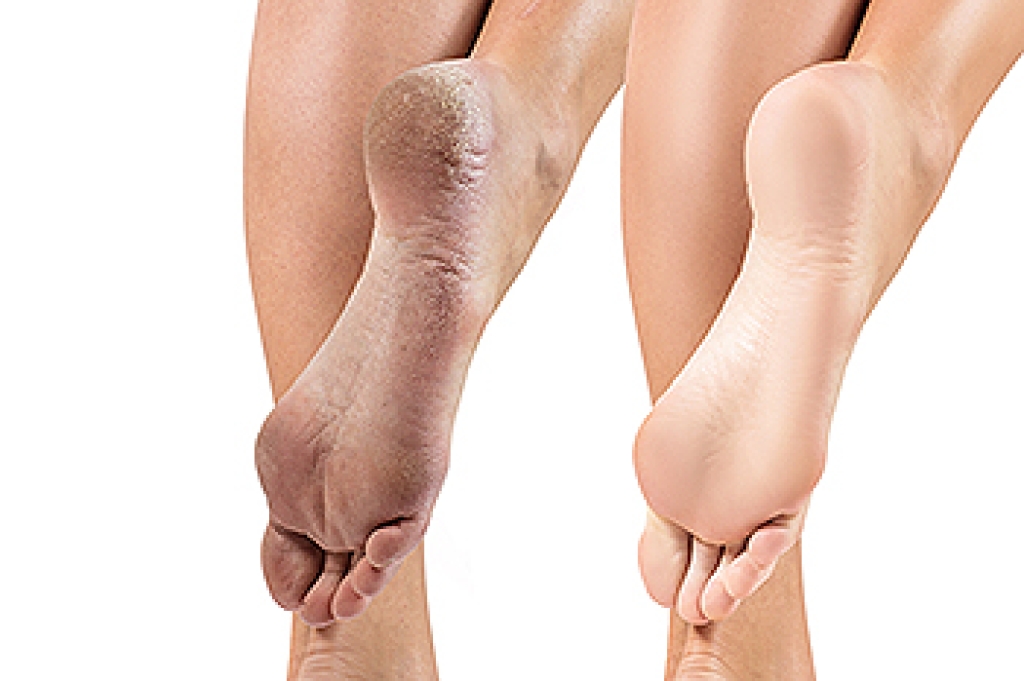 As the feet age over time, they begin to wear down. For example, a lot of the cushioning and the fat pads of the heel and ball of the foot begins to wear away. The skin on the feet loses elasticity and the nails become more brittle. Bone deformities and other conditions, like bunions and arthritis, may lead to an increased risk of falls. Due to the different affects aging can have on the feet, it is very important to implement routine foot care and daily inspections. If you notice that the skin on your feet has become dry, or if you are experiencing a burning or tingling sensation in your feet, it is suggested that you consult with a podiatrist right away. A podiatrist can properly diagnose and treat a wide variety of foot conditions. If it becomes too difficult to inspect your feet daily, it is suggested to schedule regular checkups with a podiatrist, especially if you have diabetes.
As the feet age over time, they begin to wear down. For example, a lot of the cushioning and the fat pads of the heel and ball of the foot begins to wear away. The skin on the feet loses elasticity and the nails become more brittle. Bone deformities and other conditions, like bunions and arthritis, may lead to an increased risk of falls. Due to the different affects aging can have on the feet, it is very important to implement routine foot care and daily inspections. If you notice that the skin on your feet has become dry, or if you are experiencing a burning or tingling sensation in your feet, it is suggested that you consult with a podiatrist right away. A podiatrist can properly diagnose and treat a wide variety of foot conditions. If it becomes too difficult to inspect your feet daily, it is suggested to schedule regular checkups with a podiatrist, especially if you have diabetes.
Proper foot care is something many older adults forget to consider. If you have any concerns about your feet and ankles, contact Dr. Castillo from Bronx Foot Care. Our doctor can provide the care you need to keep you pain-free and on your feet.
The Elderly and Their Feet
As we age we start to notice many changes in our body, but the elder population may not notice them right away. Medical conditions may prevent the elderly to take notice of their foot health right away. Poor vision is a lead contributor to not taking action for the elderly.
Common Conditions
- Neuropathy – can reduce feeling in the feet and can hide many life-threatening medical conditions.
- Reduced flexibility – prevents the ability of proper toenail trimming, and foot cleaning. If left untreated, it may lead to further medical issues.
- Foot sores – amongst the older population can be serious before they are discovered. Some of the problematic conditions they may face are:
- Gouging toenails affecting nearby toe
- Shoes that don’t fit properly
- Pressure sores
- Loss of circulation in legs & feet
- Edema & swelling of feet and ankles
Susceptible Infections
Diabetes and poor circulation can cause general loss of sensitivity over the years, turning a simple cut into a serious issue.
If you have any questions please feel free to contact our offices located in Bronx, NY Yonkers, NY . We offer the newest diagnostic and treatment technologies for all your foot and ankle needs.




